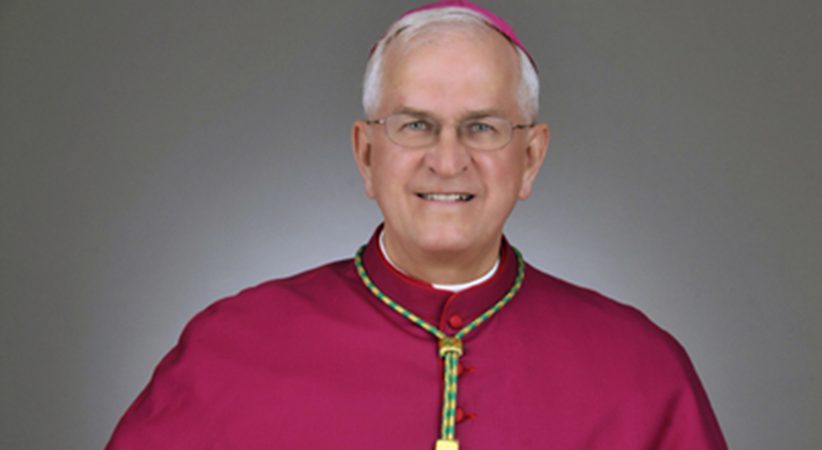They Call Me ‘Father’
Priests should appreciate the title’s significance
Archbishop Joseph E. Kurtz Comments Off on They Call Me ‘Father’
Being a father takes some getting used to. It is said that when God creates a child in the womb, he transforms a husband and wife into a mom and dad — a kind of second creation. This does not mean the new responsibility comes easily. Ask any new parent about waking up at 2 a.m. to a crying child of God! Nonetheless, there is a new creation; it is from God, and we stand in awe.
The “spiritual fatherhood” of the priest is similar. When the bishop imposes hands on the newly ordained, a new father is created — a spiritual father. I remember that it was hard in 1972 to get comfortable with being called “father.” Despite the nine years of seminary, it seemed such a rapid transformation. However, the opposite happened just as quickly. I became almost too comfortable, hearing “Father Joe” as a title that faded into the background with little impact on the daily run of events.
This Father’s Day is a perfect time for us priests to reflect intentionally on that beautiful title, “Father,” and the richness that it contains. The Gospels reveal that Jesus loved “Abba” — both the person and the reality of the title. To be close to the Father through nights of prayer became his time for trust and assurance. For Jesus, his heavenly Father was present in an intimate way and had a profound effect on his life and ministry.
In many ways, being a good father is all about being present. A recent study asked fathers to estimate how much undivided attention they gave to their children. After receiving the estimate, the researcher placed a monitor on each father to clock the actual time spent. As you might imagine, where the father spoke regrettably of spending only a few hours a day, the monitor measured only seconds. In this multitasking age, being a good father means giving the valuable gift of undivided attention to children.
Some priests have a gift for giving undivided attention to parishioners. It might be the brief conversation after Mass or time spent beside the hospital bed. It might be with the child on the playground or the parishioner who seeks counsel in the parish office. As I look back on 45 years of priestly life, I recall with joy those simple conversations in front of church before or after Mass — times of giving attention as a good father does.
I have found that the best way to increase the capacity to be a good spiritual father is to bring this intention to prayer and to be specific. In 1988, right after I became a pastor for the first time, I began to bring the parish pictorial directory to my morning Holy Hours. One page a day became my recipe. At first I sought to learn and memorize names and faces. Then I found that my prayer for that page of family portraits became deeper and more intimate. I recalled a hospital visit or conversation in front of church. I prayed in joy or in sorrow as I found my mind and heart more intimately in touch with the ones I served and who called me “father.” I returned to this practice again this year, as I pray daily for 20 or 30 prayer intentions. I imagine that St. Joseph must have prayed for Jesus each day. His example provides all the qualities that are so important: humility; being worthy of trust; having an eye for protecting; being one who sees the “child” not as a possession but as a privileged person for whom to care.
|
Like what you’re reading? Subscribe now.
|
What will you, brother priest, do this Father’s Day? Here are a few suggestions:
• Say “thank you” to God for your father and all fathers whom you have come to know.
• Say “thank you” for your spiritual fathers, those who helped you through seminary days and into the present.
• Make time each day to pray for the families you serve. Get out the parish pictorial directory and pray specifically.
• Most importantly, when you say the prayer Jesus taught us, recall that we don’t understand God as Father because we know dads. Rather, the more we come to experience God as our Father, our loving and ever-present Father, the clearer will be our spiritual fatherhood.
Archbishop Joseph E. Kurtz is archbishop of the Archdiocese of Louisville, Kentucky.





